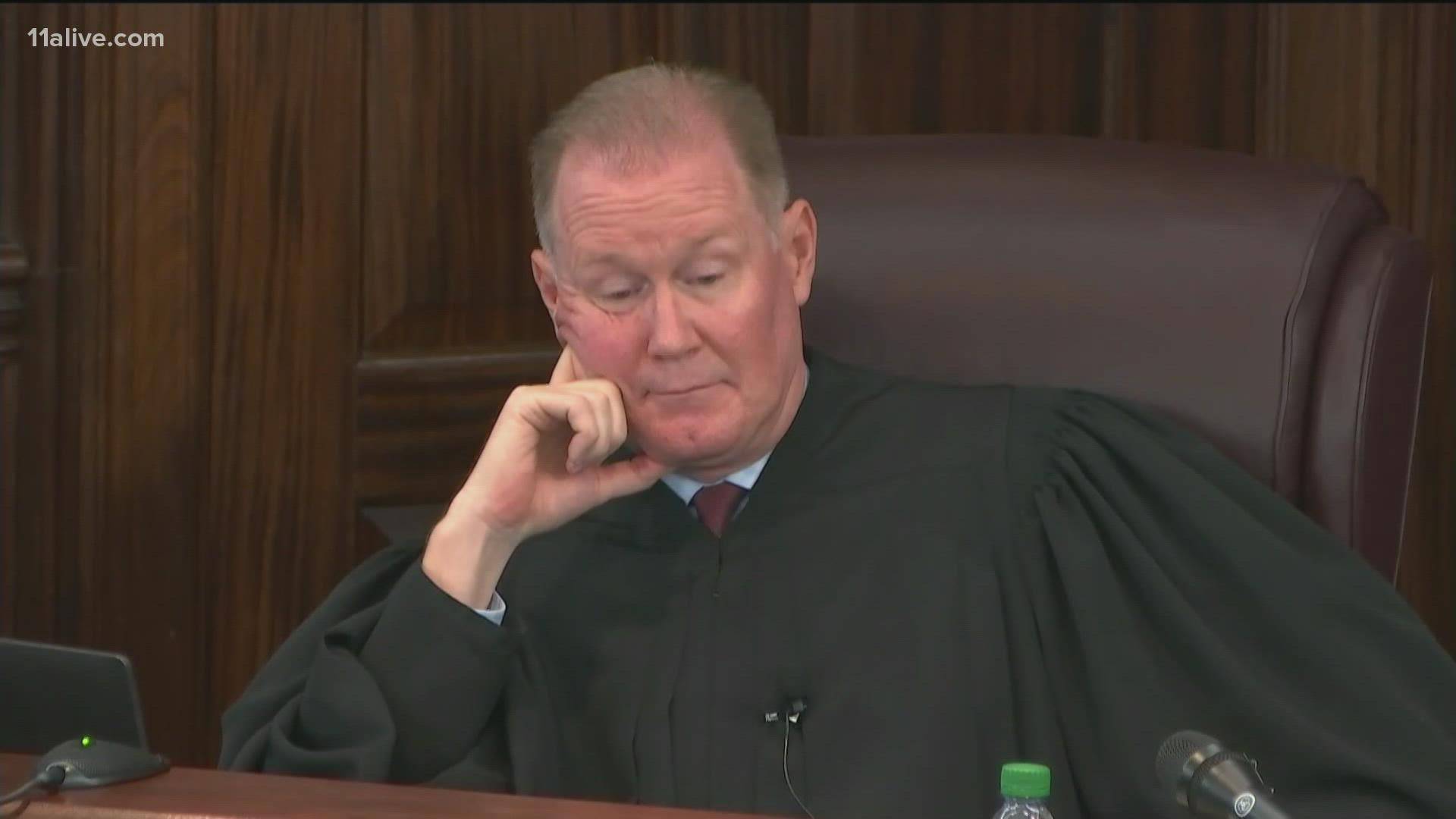BRUNSWICK, Ga. — The trial in the death of Ahmaud Arbery resumed without the jury on Tuesday morning. Attorneys for both the defense and prosecution spent about an hour discussing whether to include a key piece of potential and seemingly contentious evidence: 911 calls.
Linda Dunikoski, the senior assistant district attorney in the Cobb County District Attorney’s Office, approached the judge with a packet containing 68 police reports.
The reports stemmed from calls made in the Satilla Shores neighborhood from Jan. 1, 2019 through May 25, 2020, she said. Arbery was shot and killed on Feb. 23, 2020.
“This morning, half an hour ago, as I was sitting in the courtroom as I was about to put up the medical examiner -- I was handed this,” she said, holding up the packet.
Dunikoski said the state was blindsided by the documents, noting they were certified last week but only presented Tuesday. She added that much of it was irrelevant.
Some of the reported calls included two roommates arguing, a person losing their credit card and a man notifying authorities his subcontractor came one day too early, according to Dunikoski. She said she did not have time to sift through each call, but pressed that nothing was substantial or related to the death of Arbery.
“What we are seeking to do is establish there is (a) high volume of crime,” said Jason Sheffield, an attorney for Travis McMichael. “People are dialing 911 consistently starting in January.”
Travis McMichael, his father Gregory McMichael and William "Roddie" Bryan, who recorded the video, are all charged with murder in Arbery's death. Defense lawyers argued the packet would help corroborate testimony that the neighborhood was “essentially on edge and under attack.”
Dunikoski had the final word – asking the judge to either allow her team more time to review the packet or toss out the evidence overall.
“Either we go down the road totally or we don’t go down at all,” she said, adding she intends to add context to each police report for the jury if the evidence were approved in court.
Apart from 911 calls, attorney Kevin Gough, Bryan’s lawyer, informed the court he had filed a motion to prohibit conduct that “may intimidate or influence jurors or otherwise interfere with a fair trial.”
After Rev. Al Sharpton and Jesse Jackson sat in court with Arbery's mother on separate days, Gough expressed their presence could be intimidating to jurors. Gough requested a mistrial Monday, which the judge denied calling his request baseless.
“It raises the same issues with more authority,” Gough said about the motion.
After a brief break, the judge said the court would rule on the use of the 911 calls and the motion soon. The jury came in and they proceeded with testimony from the medical examiner who performed an autopsy on Arbery.

